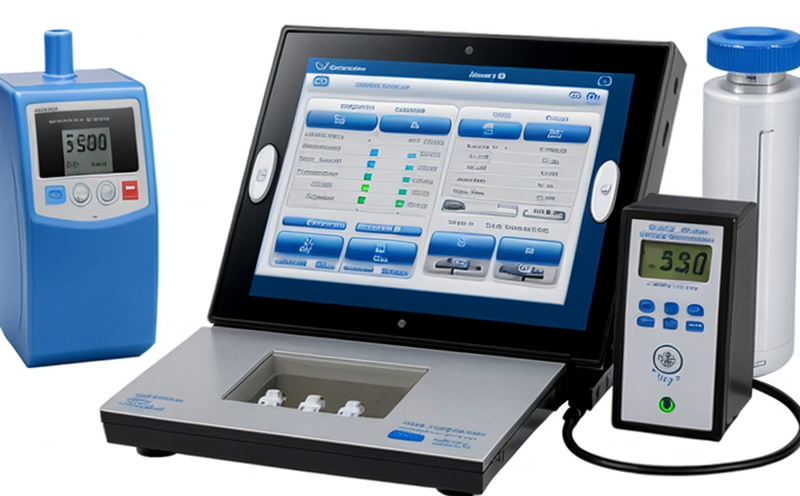ISO 11608-1 Needle-Based Injection Systems Dose Accuracy Testing
The ISO 11608 series of standards is pivotal in ensuring that needle-based injection systems, including infusion pumps and drug delivery devices, meet the highest levels of safety and accuracy. This section focuses on ISO 11608-1, which specifically addresses dose accuracy testing for these medical devices.
The primary objective of ISO 11608-1 is to provide a standardized method for determining the accuracy with which an injection system delivers doses under various conditions. This is critical because even small inaccuracies in dose delivery can have significant clinical implications, leading to ineffective treatment or adverse health outcomes.
Compliance with this standard ensures that medical devices are reliable and consistent across different environments and user populations. The testing protocol involves precise measurements of the delivered dose compared to the programmed dose under a variety of conditions including temperature variations, humidity levels, and operational parameters such as flow rate and pressure.
The test setup typically includes a calibrated dosimeter and software that can log and analyze data from multiple trials. The results are then analyzed against predefined acceptance criteria laid out in ISO 11608-1 to ensure the device meets the required accuracy levels. This process is crucial for medical device manufacturers to demonstrate compliance with regulatory standards before bringing products to market.
Understanding the importance of this testing, many quality managers and R&D engineers prioritize it as a key component of their product development lifecycle. By adhering to ISO 11608-1 guidelines, they can ensure that their devices are safe and effective for patients while also meeting regulatory requirements.
Why It Matters
The accuracy of dose delivery in medical devices is paramount in ensuring patient safety. Inaccurate doses can lead to under-treatment or over-treatment, both scenarios potentially resulting in severe health risks. For infusion pumps and drug delivery systems, precision is not just a technical challenge but also a matter of life and death.
When considering the broader impact, accurate dose delivery ensures that patients receive the exact amount of medication needed to achieve therapeutic effect without unnecessary side effects. This precision can extend patient outcomes, reduce hospital stays, and improve overall quality of care.
The reliability of these systems is also crucial for healthcare providers who depend on consistent performance from their medical devices. By adhering to ISO 11608-1 standards, manufacturers not only enhance the safety and efficacy of their products but also build trust with healthcare professionals and patients alike.
Why Choose This Test
- Regulatory Compliance: Ensures adherence to international standards that are recognized globally, enhancing market access for medical devices.
- Patient Safety: Guarantees accurate dose delivery, minimizing the risk of under-treatment or over-treatment.
- Consistent Performance: Provides data on how well the device performs across various environmental conditions and operational parameters.
- Risk Mitigation: Identifies potential issues early in the development process, reducing risks associated with product failure.
- Enhanced Reputation: Demonstrates commitment to quality and safety, which can enhance brand reputation among healthcare providers and patients.
The benefits of ISO 11608-1 testing extend beyond compliance; they contribute significantly to improving the overall patient experience by ensuring that medical devices perform as intended. This comprehensive approach is essential for any manufacturer aiming to produce high-quality, safe, and effective medical devices.
Environmental and Sustainability Contributions
The testing of needle-based injection systems under ISO 11608-1 standards has several environmental and sustainability contributions. First, by ensuring accurate dose delivery, manufacturers can reduce the amount of medication wasted during treatment, thereby conserving resources and minimizing waste.
Secondly, compliance with these standards helps in reducing the overall carbon footprint associated with medical device manufacturing and usage. This is because reliable devices require fewer adjustments and recalibrations, leading to reduced energy consumption and operational costs.
Furthermore, by promoting the use of accurate and efficient medical devices, ISO 11608-1 testing contributes to better healthcare outcomes, which in turn reduces the need for additional treatments or interventions. This holistic approach not only benefits patients but also supports sustainable healthcare practices.





